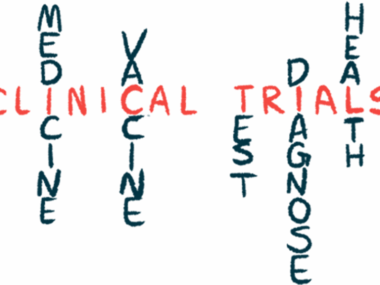What’s next after Pfizer’s gene therapy for hemophilia B is halted?
The community has lost the option of Beqvez with this recent decision
Written by |

Gene therapy has long been touted as a revolutionary hope for people with hemophilia B, promising a one-time treatment to drastically reduce — or even eliminate — the need for frequent infusions. Yet that hope has hit another roadblock.
Pfizer announced last week that it’s halting development of Beqvez (fidanacogene elaparvovec-dzkt), its gene therapy for hemophilia B that had been approved by the U.S. Food and Drug Administration. Coming after Pfizer discontinued its involvement with a hemophilia A gene therapy in development, this decision has left the bleeding disorders community grappling with uncertainty about the future of gene therapy and access to cutting-edge treatments.
As someone with mild hemophilia B, I’ve watched gene therapy’s rise with intrigue but never with the expectation that it would apply to me. These advancements, I felt, weren’t designed for people like me — women with hemophilia or those with mild cases. Clinical trials and treatment guidelines have overwhelmingly targeted men with severe hemophilia, sidelining women and those with less severe forms.
This gap underscores a persistent flaw in bleeding disorder research: a lack of inclusivity that leaves entire groups out of the promise of transformative care.
What stunned me most about Beqvez’s cancellation is that no patients have received it outside clinical trials. Demand seems to have fizzled among patients and doctors alike, perhaps overshadowed by newer options like Pfizer’s own Hympavzi (marstacimab-hncq) or perhaps because of price ($3.5 million a dose).
Described on the once-weekly treatment’s website as “the first and only subcutaneous prophylactic treatment that comes in a fixed-dose, prefilled pen,” Hympavzi redefines convenience for hemophilia A and B management. No more vein hunting or infusion hassles — just a quick jab and you’re done. For many, that’s a genuine game changer, offering a less invasive way to live with this condition.
What Pfizer’s move means for the hemophilia B community
For those who tracked Beqvez’s journey or joined its trials, Pfizer’s exit stings. Gene therapy symbolizes a bold leap in hemophilia care, but its real-world reach remains elusive. With Beqvez off the table, patients face fewer choices, and the broader field might see innovation stall as companies reassess risks and rewards.
Still, it’s not all gloom. CSL Behring’s gene therapy treatment Hemgenix (etranacogene dezaparvovec) remains on the market, delivering encouraging results in sustaining factor IX levels from clinical trials.
But challenges persist — cost chief among them. Priced at roughly $3.5 million per dose, as Beqvez was, Hemgenix is out of reach for many, despite insurance and assistance programs aiming to bridge the gap. Eligibility and long-term outcomes also spark debate, leaving patients and providers weighing benefits against unknowns.
Nonetheless, Kim Phelan, CEO of the Coalition for Hemophilia B, told me by email that “Anyone who wants gene therapy should talk to their hematologist and work with their insurance companies and there are resources to help navigate the Insurance and financial hurdles.”
Looking ahead, hope endures. Beyond gene therapy, alternatives such as Hympavzi and other rebalancing agents — treatments that tweak anticoagulant pathways to restore clotting balance without replacing factor IX — are gaining traction. These innovations could broaden the toolkit for managing hemophilia.
Yet for them to succeed, the community must demand more than just new options. We need treatments that embrace everyone — women and anyone with mild or moderate cases — not just the narrow slice of patients historically prioritized.
Pfizer’s step back from Beqvez isn’t the end of the story. It’s a pivot point, a chance to rethink how we approach hemophilia care. The future hinges on pushing boundaries, yes, but also on ensuring no one’s left behind when breakthroughs arrive.
Note: Hemophilia News Today is strictly a news and information website about the disease. It does not provide medical advice, diagnosis, or treatment. This content is not intended to be a substitute for professional medical advice, diagnosis, or treatment. Always seek the advice of your physician or another qualified health provider with any questions you may have regarding a medical condition. Never disregard professional medical advice or delay in seeking it because of something you have read on this website. The opinions expressed in this column are not those of Hemophilia News Today or its parent company, Bionews, and are intended to spark discussion about issues pertaining to hemophilia.




Leave a comment
Fill in the required fields to post. Your email address will not be published.